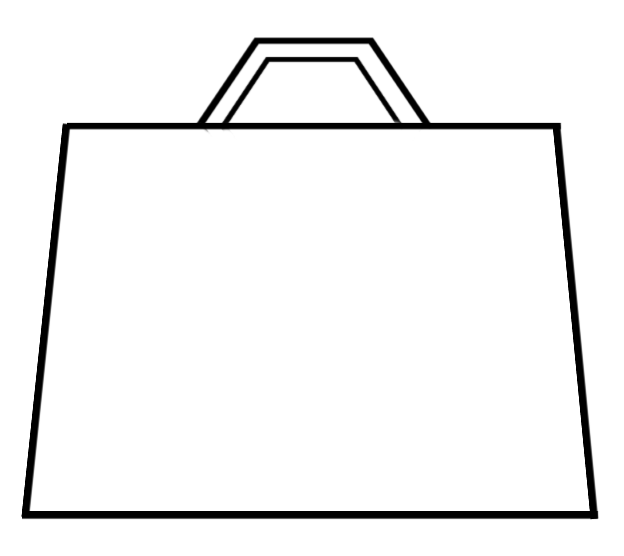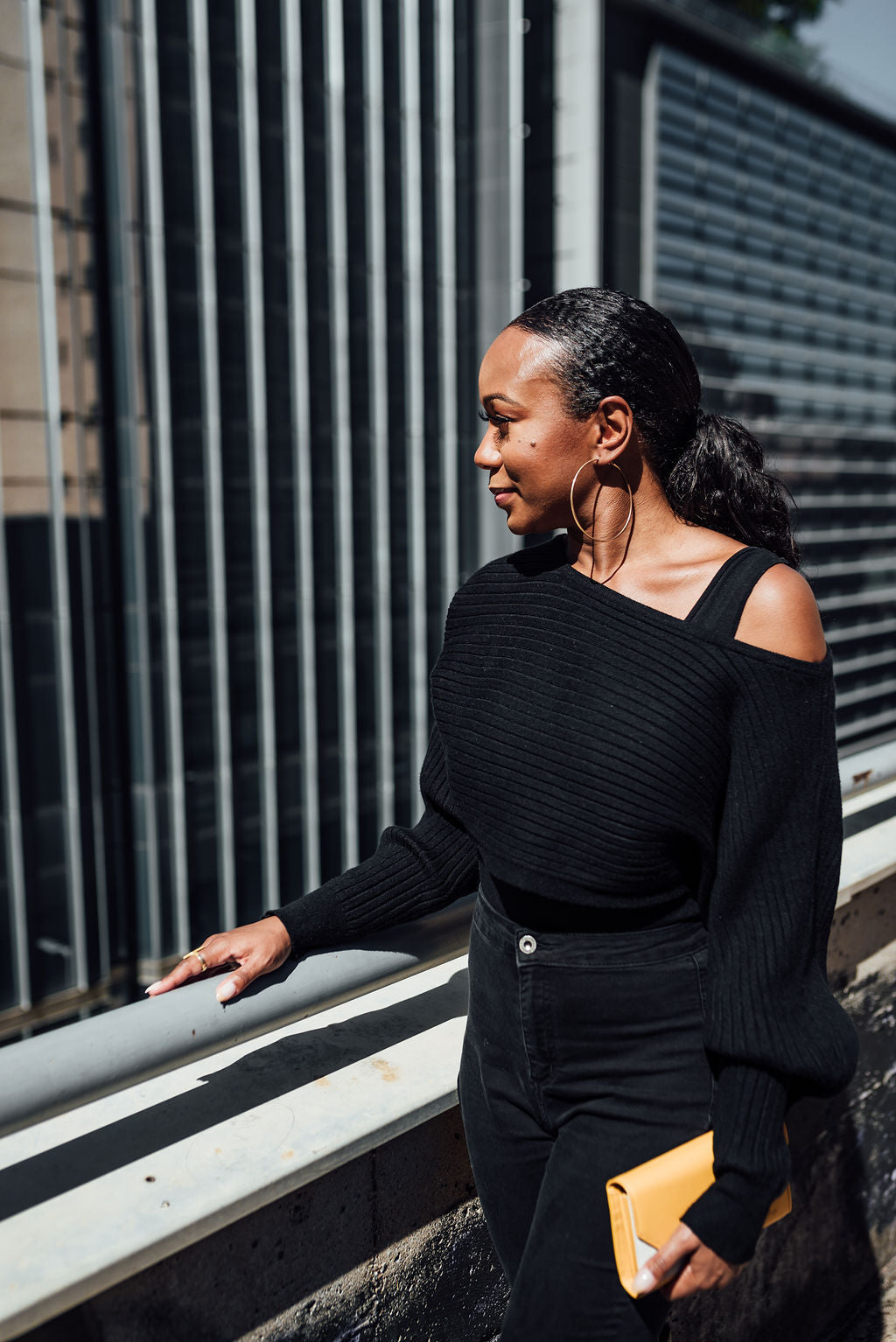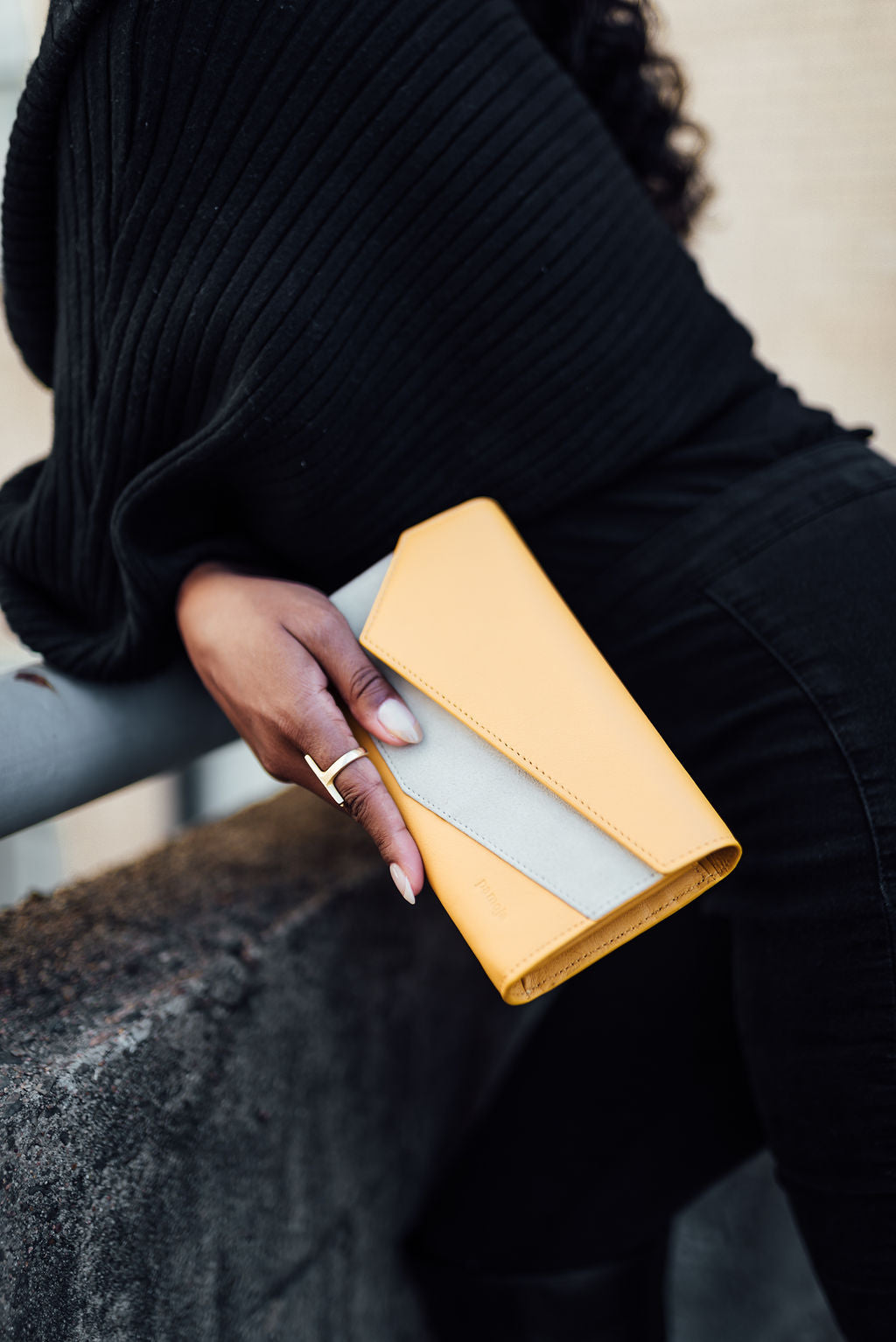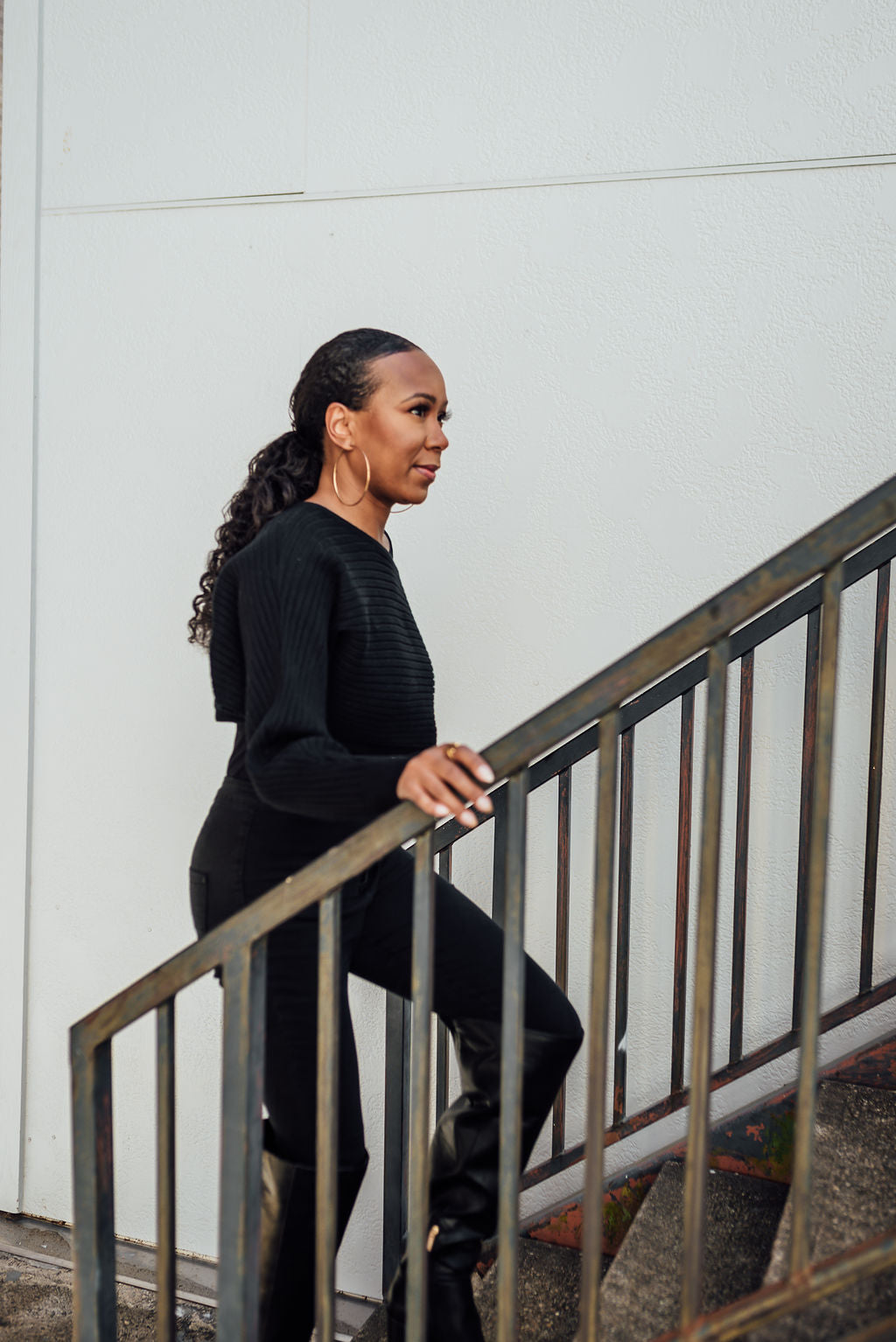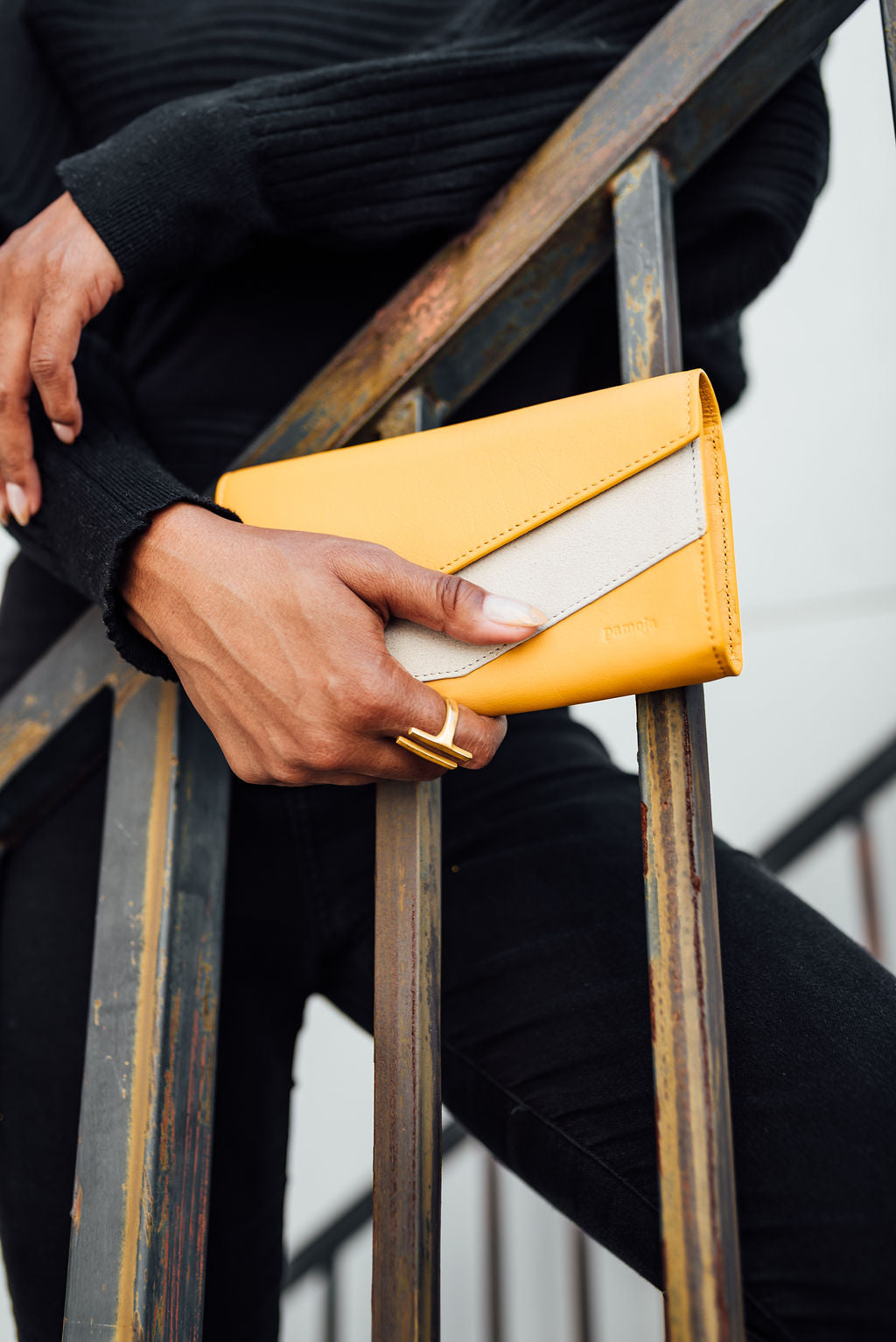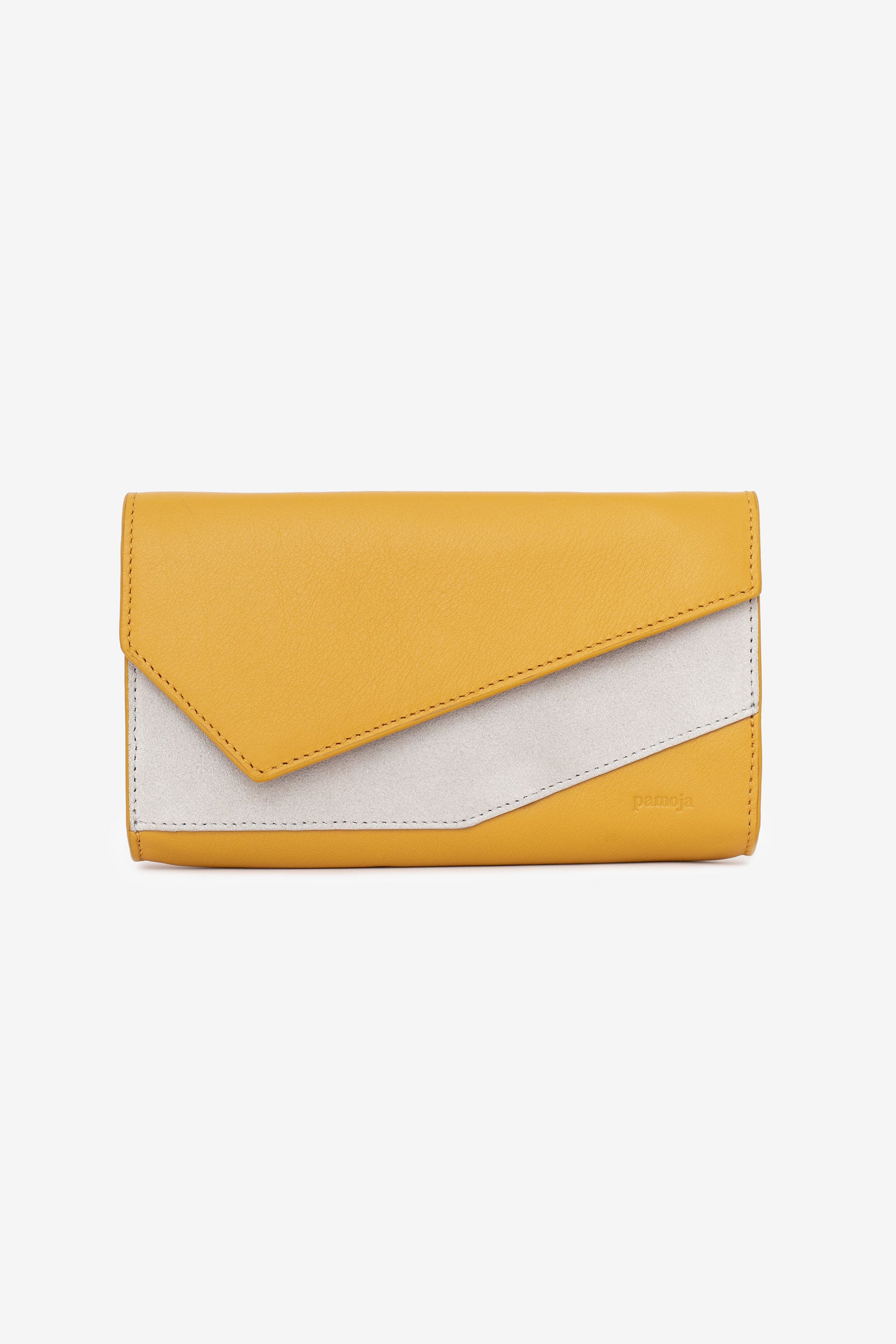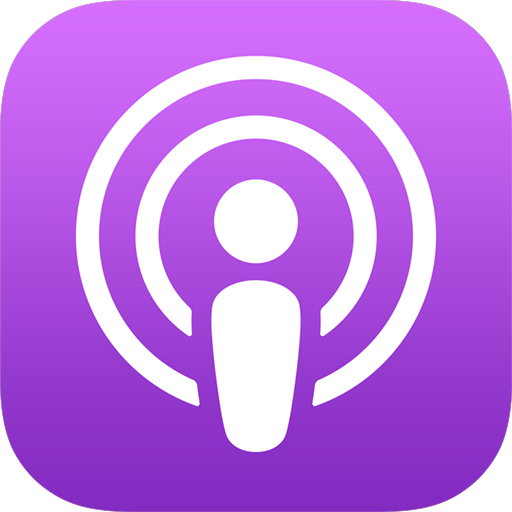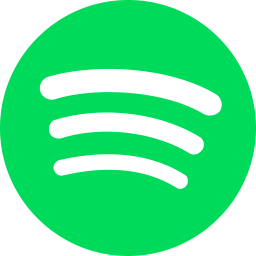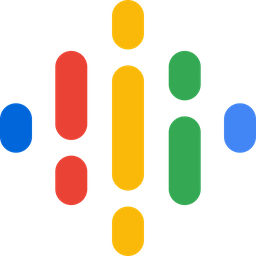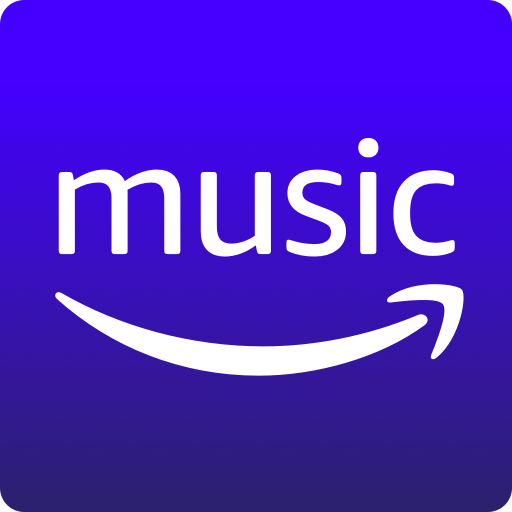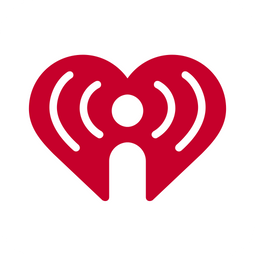12 | Adrienne Blanks: Life Gets Better when You See Redirection as an Upgrade
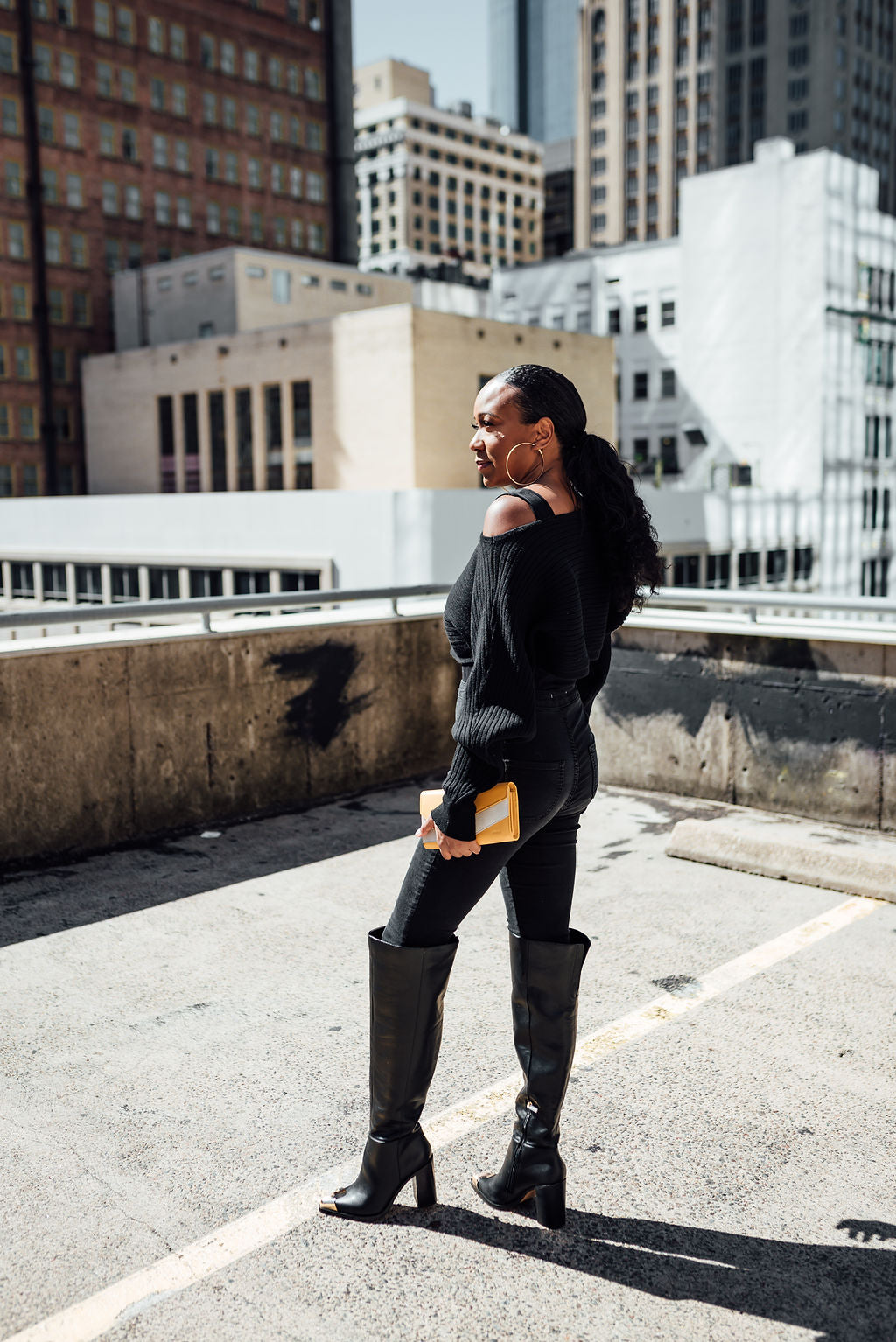
12 | Adrienne Blanks: Life Gets Better when You See Redirection as an Upgrade
Being a multi-hyphenate creative at heart, Adrienne Blanks has always balanced multiple projects at a time.
If you ask Adrienne, Nail Polish chose her and it ultimately became the vessel that steered her into business coaching after experiencing burnout in her very own creative venture. Adrienne has pushed the boundaries, and now she’s entering into a new era of purpose working with entrepreneurs to help find clarity and strategy in launching their business projects, so they are set up for success in the long run.
Topics Covered:
- The one way ticket to New York to pursue my dream career in media
- How unemployment forced me to pivot into entrepreneurship
- Acknowledging burnout and when it’s time to move on
- Embracing the numbers when you’re a creative
- Dismantling the lack of capital and access for minorities
- Working from an empty cup, learning to slow down and pour into myself
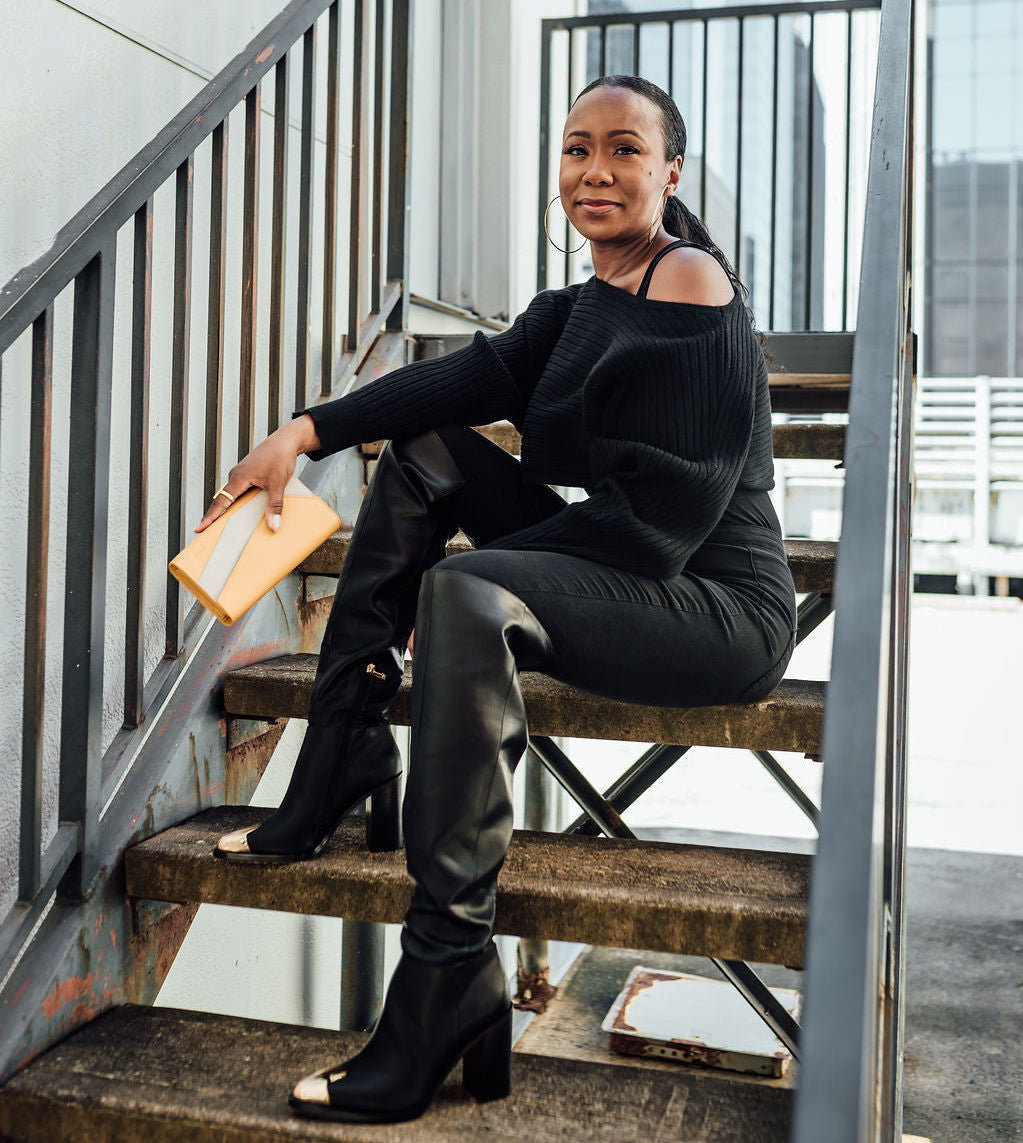
- The one way ticket to New York to pursue my dream career in media
- How unemployment forced me to pivot into entrepreneurship
- Acknowledging burnout and when it’s time to move on
- Embracing the numbers when you’re a creative
- Dismantling the lack of capital and access for minorities
- Working from an empty cup, learning to slow down and pour into myself
Explore Our Podcast
Transcript
Adrienne Blanks: I know what it's like to work from an empty cup or a cup that's not overflowing, and I'm not doing that no more. I did it before. It's not worth it.
Stephanie: I am Stephanie Evans and this is Diaries of a Modern Trailblazer. Take note of the journey and be inspired to forge your own amazing path.
I just want to kick it off and learn more about who Ms. Adrienne Blanks is.
So tell us more about your background. Like who you are, where you come from, and how you landed to where you are today.
Adrienne Blanks: Oh man, that's loaded. Okay. Well, I'm Adrienne Blanks.
A proud multi hyphenate, creative entrepreneur, a business consultant, business coach, educator, friend. I grew up in Missouri City, Texas. It's like on the Southwest side of Houston for those of you that don't know. And, I'm the daughter of a fine artist. My dad is a fine artist, and he coached track athletes, football, basketball, lots of different sports, but his focus was definitely on track. Um, he has some Olympians under his belt.
And my mother is more of the left brain. She has more of a corporate background, worked for a law firm most of my life and they're both retired.
I am a sister. I have an older sister and, I'm an auntie. And, you know, I am the product of my parents.
I literally have both that left brain, right brain thing going on, and my left and right brain are constantly fighting each other. It's a battle that I've had to work with most of my life, which makes me the multi hyphenate that I am.
Stephanie: I saw that you studied radio, television, and film. And seeing what it is you do today, what did you initially think your career was going to look like? Because, you know, it's, It's a lot for someone who's like 17 or 18 years old to determine what it is they want to be when they grow up. I mean, today I'm still trying to figure out who I want to be and what I want to do when I grow up.
So like, how did that start off for you? And like, when did things shift?
Adrienne Blanks: So I guess at that time, I mean, let, we can, we can go back a little bit. I was a very creative child. I always had a lot of creative projects going on at the same time, which makes sense with my dad being an artist. So I had access to a lot of paint and all kinds of different mediums to be able to play around with, and my mom says that I constantly had projects going on at the same time.
So I've always been very active. I was in dance growing up, ran track, played piano. Um, didn't really get that great at it, but I was like that girl in coming to America where she was like, I want to write my own songs, produce my own songs. I want to be a rock star. I wanted to do it all. And um, I don't know. I used to just watch a lot of movies and MTV and BET and all that. And I was just inspired by those music video shows where they would, um, kind of show how to make a music video.
I forget the name of the, of the show. It was a while ago, but...
Stephanie: I remember that. I don't remember the name of it.
Adrienne Blanks: Seeing that made me want to work in radio, TV, and film, or learn how to make a music video or, um, be on the radio, create a little radio show or something. And of course, this was all before podcasts and all the access that we now have to, to media.
And producing things on our own and yeah, I just decided that it sounded fun and I wanted to learn how to write a TV show or make a, make a music video or be like Oprah, you know, be like Oprah, become a VJ. My, my imagination was wild. So I just thought, okay, well, I'll learn how to do that. And that's how I ended up becoming a radio, TV and film major.
And I'm a little superficial, but. It's just, that's what it was.
Stephanie: And with that, what did you decide to do afterwards?
Adrienne Blanks: So when I graduated, I did not get picked up by like a agent or anything like that. I didn't really know what I was going to do. I ended up teaching, substitute teaching, and I worked on the executive floor. It was at Houston Community College and I ended up getting to know a lot of the executive leadership of HCC. So I was working with the the woman who was like the director of communications.
I was actually a receptionist there and they got to know me and, you know, would ask me questions like, "Why are you a receptionist?" I'm like, "Oh, it's just a temporary job." And then they gave me opportunities to kind of work, uh, with the woman who was over PR and things like that. And that was when I started, um, trying to put a plan together so I could move to New York. I knew I wanted to get to New York at some point, and I pretty sure I wanted to get to New York so that I could work for MTV and...
Stephanie: Why not?
Adrienne Blanks: Yeah, because why not? And, um, I told them that. And so the lady who was over the communication, she was like, okay, well, you, you can work on some projects that we have. So I would help her write like press releases, or I would go with her to different press related things. And they were just kind of getting me out there and, um, letting me explore career opportunities.
And then I saved up what I thought was a bunch of money and, decided to buy a one way ticket and move to New York, um, so that I could just pursue some dreams. You know, I just wanted to try, just give, give things a try.
Stephanie: And that's what it takes to be bold enough to pursue that dream.
A one way ticket to New York City is a drastic change from where you come from.
Adrienne Blanks: Yeah, I don't know what I was thinking. I wasn't being realistic, but I think that's what made things work for me is that I didn't really know. And as much as people warned me, I was kind of like, well, I'm got to figure it out, and I did, but, um, there was some painful moments though. Um, some, some interesting lessons I had to learn, but it's all good. The, the change was— I've been to New York a few times. I had friends that lived there already. So, um, it wasn't a complete, a complete shock, but it, it was like, I think the second week that I was there, um, I think someone had gotten shot or something and I heard the gunshots, but I don't think I had really heard gunshots like that outside of like a track meet.
Stephanie: Yeah.
Adrienne Blanks: And then we, I stepped outside, maybe. A few minutes later, 30 minutes later, and I see a body on the ground, there's ambulance and stuff. So that was when it hit me where I was like, oh, shoot. Um, I'm like in
New York, I'm away from my family. Somebody just got shot and that's when it got real. I think it would get real for anybody who, you know, didn't really expect that to happen that day.
So, um, so there was, it was that type of, um, adjustment there. And then the other adjustment was just really kind of, um, wrapping my head around the fact that this is an expensive city and I gotta, I gotta figure this out. I gotta figure this out. I gotta make sure that I have enough money to do what I need to do, I need to kind of get a plan together.
Um, cause my no plan plan wasn't going to work for too much longer. And yeah, so I just focused on just working. So I was kind of doing a lot of temp jobs and stuff until I actually got like my first air quote, real job. And my mom really, uh, emphasized me getting a real job and by a real job, I mean a job with benefits.
Steady income and not my like temp jobs that I was doing so that I could like try to, I don't know, get some media opportunity. I don't know. I don't really know what I was looking for at the time, but I had a vision and I was trying to make it happen.
Stephanie: How did you get into nail care and decide that this is something that is worth pursuing?
Adrienne Blanks: Well, I've always loved getting my nails done. So growing up, I couldn't really wear makeup like in middle school and stuff. But my mom would let me go get my nails done. And so I would get like crazy designs on my nails and I get them long and all kinds of stuff. And it was my way of expressing myself until I was like a teenager to where I could actually like wear makeup and stuff like the other girls.
So I would always do, I've always done my own nails. Um, and I found it relaxing. Um, so, and, and because New York was expensive, that was one of those expenses that I had to cut out, um, as I was kind of transitioning and adjusting to the city. So I would do my own nails and, you know, I'd have, I would do my friend's nails and not for money, just cause I wanted to, it was a fun way to kind of bond with a friend and drink wine.
Um, you know, talk about what's going on in life and, you know, just kind of hang out. Um, so that's something that I would do like maybe on the evenings or weekends.
And yeah, I mean, I, I ended up working at psychology press, the New York times, and I worked at the New York times and I thought I had made it.
I was like, yay, dream job. It's great. It helped me. Awesome. And then, uh, they let us go. So...
Stephanie: What were you doing over there at the New York Times?
Adrienne Blanks: I was doing advertising sales.
Stephanie: Okay.
Adrienne Blanks: And I did not like it, but I liked working for the New York Times. It felt like a dream job. I mean, even just to say it, it just happened on my resume and it was aligned with like my degree, you know?
I had high hopes with that job. And then it was like, stripped away from me.
Stephanie: And it was a real job too!
Adrienne Blanks: It was a real job. Like I finally got a real job, like my mama told me to. And, and, um, it was, it was hard. Advertising sales was hard, especially the, the kind of accounts that I had.
So there was a little bit of relief when I got laid off, but then it was like, uh, uh, oh shit too, because this city is expensive.
Stephanie: Right? How are these bills going to get paid?
Adrienne Blanks: How am I going to pay these bills? So it was during that layoff where I kind of, um, to just bring some peace to myself, I would do my nails, doing my nails kind of forced me to be able to sit still and just kind of focus and think, and I would do friends nails and then they knew I was unemployed so they would pay me.
Um, and I had, uh, would joke with them like, yeah, I'm gonna start me a business and call it, call it, get your nails did. And it was just kind of a joke. I wasn't even really thinking of doing that. So maybe a year later, um, started working again. Some random fashion job that I had, um, in the middle of the night while I was sleeping.
I kind of woke up in the middle of the night, and I had this, you know, let's just say it was God that woke me up and told me to purchase getyournailsdid. com and then grab all the social media handles for it. And, you know, I'm listening, I'm like, am I going to start a nail polish line? Like, yeah, I'm like, how, how, how am I going to do this?
So I've always loved, you know, I've always loved beauty products. I've always loved getting groomed and, you know, get my hair done. Nails done, all that stuff. Get my nails did. But, um, I never thought that I would start a nail polish line. Nail polish chose me. I didn't really choose it. And once I took that leap, I purchased the domain, then I had to kind of get going.
Stephanie: Right? It's like, okay, this is happening. It's real.
Adrienne Blanks: Yeah, it's real. So I didn't, I didn't initially start out, um, with the products just yet. I was just kind of like being this nail tech at, pop up shops. I forget one part.
I'm forgetting one thing. The biggest thing during this unemployment season, I actually did file for unemployment in New York state and I, I actually read the book that came with the whole, um, the paperwork. And I read that if you, um, end up enrolling in like a trade school or something like that, it'll extend your unemployment. And I was trying to figure out what I was going to do after I was done with, you know, advertising at The Times.
And I didn't really know what else I wanted to do. And so I was like, well, I'm gonna go to beauty school. I'll learn a trade that way. I'll, I'll always have a job. Like I'll always be able to do some nails if I want to. Um, and ended up having this opportunity to go to nail school for free, by talking to the director about my work experience, my experience working in, you know, media, and just other things that I had done and they needed help with their social media presence and things like that. Then they wanted to have a blog for their school and stuff, so I helped them with that and in exchange, I went to nail school and I got my Nail Tech license.
First just started out as a nail tech. A friend of mine, she had a trunk show, um, which we now know is like pop up shops. And she asked me, she was like, "Hey, can you have a booth at my trunk show and offer, you know, complimentary manicures or whatever." And I was like, okay. So I grabbed up all the nail polish that I had. I asked my friends for their nail polishes. Mm-Hmm. I made it look cute at my little table and I was doing like mini manicures.
I might've charged $5 for them. I can't really remember, but people either tipped me or paid me something. And I thought it was incredibly interesting that people literally kept asking me if the nail polishes that I had at the table were mine, like if they were my line and I thought they were crazy because I'm like, don't you clearly see that this says OPI, it says Essie, it says whatever, no, these are not my nail polishes.
They're like, Oh, I thought this was yours. And I was like, really, I'm really supposed to start my own nail polish line? Like, I mean, I don't, this is surprising me. Yeah. And so it was, it was me kind of getting this, I don't know, divine message. And actual people thinking that this big time nail polish brand was mine.
Brands that are already in the beauty store. It was nuts to me. So I just started doing research on manufacturing and then that's kind of where it got started.
Stephanie: That's really, really cool. And one of the things that, you know, caught my attention as you were talking about it was really how you were able to utilize your skill set that you learn. Like what you were learning in school and what you were doing straight out of undergrad, like that PR skill set helped you pivot to learn a new skill set that would further traject as an entrepreneur in creating your own nail brand.
You've got some really cool press features out there. Just throw out a few of them so people know.
Adrienne Blanks: Yeah. So I mean, Essence, Harper's Bazaar, USA Today. Um, I'm missing some Women's Health. There was a lot. I, I, I didn't, I didn't know that it was going to happen that fast and, and not only that I, I, on the inside, I felt a little unprepared, but then I had to get it together, shake off that, that feeling and just lean into it.
I was very surprised by that, even though I knew it was going to happen. I just didn't know it was going to happen that fast.
Stephanie: Right. You always got to be prepared to receive those blessings.
Adrienne Blanks: Yeah. Yeah.
Stephanie: And with that, what was the biggest obstacle you encountered?
Adrienne Blanks: So, internal and external obstacles. I'll be transparent. Internally, was me believing that it was happening and, um, processing that. Not that I didn't believe in myself, I just, as it was happening, I, sometimes I felt a little unprepared, you know, I didn't know if I was like saying the right things at certain meetings that were happening.
Um, so there was that part. Sometimes I didn't know if I was understanding exactly what they were telling me, which is why I tried to keep myself educated a lot, taking, you know, whatever free business classes I could take, um, working with the, uh, SBA, things like that, so I, whenever I felt those little insecurities, then that's when I would say, okay, let me go talk to somebody at the local entrepreneurship center or whatever so that I don't feel this, um, like insecurity anymore.
Stephanie: Yeah.
Adrienne Blanks: So that was like an internal kind of challenge. And then external with money. You know, it is not just because you do your first run and you, you know, saved up some money or whatever to get your first, um, production run going, you still got to have some more money to do other things.
So it was me constantly trying to figure out how to fund this thing. Put some sort of presentation together to pitch to whoever I needed to just try to find some money.
Stephanie: Yeah. Cause there's, there's always the operational costs that people don't see happening in the back end.
Adrienne Blanks: Like all the way down to like post it notes, tape like these things that you don't think of.
Stephanie: And it all adds up, it's just like, how did I end up spending this much money this month? But yeah, I know, earlier in the conversation, when you were talking about what you're doing today, you didn't mention that you're doing Get Your Nails Did. You're doing something else. How did you make that decision that it was time to move on and move forward and focus on something different? What was the pivot?
Adrienne Blanks: The same way the decision was made for me to do it, it happened the same way for me to transition out of it, except that I didn't really want to transition out of it. And at the same time I did. I was burnt out. Like I had been doing this, my career kind of in just nails and beauty started in about 2010, the line starting in 2012, it got real in like 2014 and then from about 2014 to 2020, it was on and popping, but I, I came out the block sprinting. Right. Like...
Stephanie: And that's quite some time.
Adrienne Blanks: Yeah.
Stephanie: At one point, didn't you have a physical presence? Like you had an actual, nail salon.
Adrienne Blanks: Yes, I did. So I had a salon. Um, it was, uh, it was kind of like a pop up salon. It was only open on the weekends, Friday through Sunday. And it was a partnership with, uh, a boutique in Brooklyn.
And, um, it was, that was pretty, that was really cool. So for that partnership started out with me. Uh, creating like a double branded, uh, collection with them. And it was their own collection. The name of the store is Marche Rue Dix. Um, really great store in Crown Heights, Brooklyn. So we started out, I believe we did a collection of 15 colors that were going to be exclusively sold in their store and that did well.
And then the owner came to me and wanted to talk to me about having a. A salon in her store that I would run. And, we worked out that deal and relationship, did that, and the first day that the salon launched. I mean, I think I even planned the salon. My business plan for the salon was probably even stronger and better than the product line.
Because one, I knew more too, at that point, I had a job where I was teaching business plan writing. So not only was I learning stuff, I learned, and then I taught other people too. So my, my planning was stronger than at that point. Became a more seasoned entrepreneur, you know? Yeah. Um, at that point, I think it was what, six or eight years in the game at this point.
So, the first day of the launch, my nail tech didn't show up. She did not show up. I think I had like 25 people.
Stephanie: Oh my gosh.
Adrienne Blanks: And even though I am a licensed nail technician, I was a licensed nail technician for, uh, a season, like a reason, a season one, because I needed to make some money for a little while. And two, because I wanted to learn a little bit more about the beauty industry practically. And I had a great opportunity to do it, but I didn't really plan on being like a nail technician.
Stephanie: Yeah in practice.
Adrienne Blanks: So I ended up having to do like 25 people's nails that day back to back. Some things went well, some things didn't.
Fortunately, people gave me a lot of grace that day, and you know, it wasn't necessarily their business or their fault that the contractor that I hired didn't show up. So I had to step in and do what I needed to do. And because of that, I needed some time to find a replacement.
I mean, she literally bailed on me the morning of. Having to, like, do my day job and that job on the weekends until I was able to find a replacement.
Stephanie: How long did that take?
Adrienne Blanks: It took, like, probably two months. It took a while.
In 2019, I decided I had to let something go. Something needed to be taken off my plate.
I worked out a deal to kind of transition out of the salon and moved into more of a consulting role over the salon, which is how I started doing consulting work. I realized ooh, I like this better. It was more calm on my spirit and, um, Um, you know, being the child that was very creative, that had a lot of projects going on , I'm still that adult.
And that's me. I'm a visionary. I have a creative mind, but I also have that, that left brain mind.
Stephanie: Right.
Adrienne Blanks: You know, and I do have a lot of strategy, and I've embraced that side of myself a little bit more. I find it makes sense to me to kind of move into this space now because I have a ton of ideas, and can I execute them all? No, but there are some people that probably need my ideas and I'm happy to get paid to share my ideas so that you can thrive because I can't keep all this information in my mind. It drives me crazy.
I've seen people soar with some of the knowledge that I've shared with them, insight or advice that I've shared with them.
And I've been constantly told, you need to get paid for this.
Stephanie: You certainly should.
Adrienne Blanks: So now, I just taking all of my experience from the, having a nail product line, having a salon, working in economic development as a business counselor and an instructor. I've also co- founded a beauty ed tech startup as well.
I was brought on to be on that team. And that's when I started learning a bit about the venture capital space, cause we were seeking VC funds. So that was another aspect of entrepreneurship that I was learning. So I've learned about the VC stuff in that way from the entrepreneur's perspective, and then also getting funding in other ways. I funded my business through small business loans. I had zero interest loans. I was able to find those sources of money.
Stephanie: Girl, tell me about that.
Adrienne Blanks: And I successfully paid them back. Like people are scared of loans for some reason. I think it's because student loans, student loans has us, we have PTSD.
Stephanie: If you had to sum up what it is you do, how would you describe that in one or two sentences?
Adrienne Blanks: I help people find clarity and strategy to launch their business projects.
Stephanie: I love that.
Adrienne Blanks: Simply, that's what I do.
Stephanie: And what do you call this business?
Adrienne Blanks: So my business coaching and consulting business is called Brainstorm Sesh. And I call it that because that's what happens when I have these conversations with people. Before I formalize my consulting work, we sit and talk and they would tell me kind of like their problem and I was like, just have a brainstorm session about it. And then they tell me everything and all
I need to do is just really hear it. And, and I know what to do. It's a combination of intuition and practical experience that I've had. I've been doing this for a long time as an entrepreneur, as a educator and business counselor consultant. I've consulted lots of different types of businesses from a food truck to someone with a nail salon. There's been a lot, hundreds.
Sometimes the solutions that I'm able to think of are simple and easy. Some of them are a little more complex. Those I find kind of fun because I get to stretch my mind and, do a little bit of research and figure out what they need to do. But I usually can point people in the right direction and they find some sort of success.
I help them figure that out. Like is profit or an increase in revenue the most important thing right now? You know, it could be that you need to streamline your workflows. It could be that you need to find a better manufacturer. Their minimum order quantities are not that great. Why are you still working with them? You know, so it, it depends. And sometimes people want a cookie cutter solution.
My role is to create a custom solution for them.
Stephanie: Right? Because it's not a straightforward path ever in building something from the ground up.
Adrienne Blanks: And I'm a prime example.
Stephanie: Yeah. Um, so. You know, I, I feel like a lot of people have these ideas of what they want to start, what they want to launch, what they want to build.
And it's easier said than done to just tell someone to start by starting. What advice would you give to somebody who's just, who's trying to really hit the ground running, but they don't know what to do next?
Adrienne Blanks: I preach a lot about writing business plans, and I know that business plans are kind of, you know, in some people's minds, archaic and outdated. I disagree.
If you're trying to seek VC funds, they don't necessarily need to see your business plan. But if you're trying to get a small business loan, they typically want to see your business plan. You also really need it for yourself to literally figure out your roadmap for the business.
What do you need to get started? Okay, you need to go if it's manufacturing products, you need to go and research different manufacturers of that product and find out all of your costs and you need a place to put that information. You can put that in your business plan, you know, it's important to, you know, talk to people who are doing what you want to do people who are open to talk about it.
I know a lot of folks don't want to share their trade secrets and stuff. And I get that too, but you know, the way that you, uh, the way that you can kind of find that safe space to ask those questions is to go to the small business administration in your, in your area, the chamber of commerce in your area. And there's all kinds of chamber of commerce. There's the Black chamber of commerce, the Latino chamber of commerce, the Women's chamber of commerce.
And they're out there and you can go to those, those, you can sign up for their mailing list and know when they have their, their workshops and classes.
You can start out with the free ones, right? But at some point you're gonna have to put some skin in the game. You're gonna have to pay for a class or pay for a coach, or pay to go to a conference or something so that you can get more information. I think info gathering is really good in the beginning. And we got YouTube as well. You can...
Stephanie: Info gathering is good, period. No matter where you are.
Adrienne Blanks: I'm constantly info gathering. I was talking to you earlier about my audible library. I've got 12 badges. I'm constantly listening to these books, or ordered a book from Amazon, or something. I'm constantly learning, I might have a little bit of information overload, but that's another story.
I think point planning, planning, and I didn't, and I was one of those people when I first started out, cause again, I'm a creative first, a creative mind first. I just wanted to make. I just wanted to create and make. I was forced to become more of a strategist, become more of a business planner. I was forced to embrace the numbers. Somebody who did not like numbers. Someone who intentionally majored in a major that had nothing to do with numbers. So I didn't have to do...
Stephanie: You don't want to avoid it.
Adrienne Blanks: And guess what I ended up having to do?
Stephanie: What was that?
Adrienne Blanks: When I became a small business counselor, I had to teach entrepreneurial finance.
Stephanie: Yeah, that's way on the opposite end of the spectrum
Adrienne Blanks: Completely. I did not and I was so nervous and intimidated. I was like, what if someone has a question that is about math, and I got to answer it. You know what I mean? I did not want to teach it, but I needed a job. You know, once I got my mind right, that job was a strategic part of my plan because I'm like, entrepreneurship is my thing now. And working in this role, not only do I get to learn by teaching others. And God is like, yeah, so you gotta wrap your mind around this money. You gotta wrap your mind around these finances. You can't be scared of it. And that's when I really started, um, diving deep into learning more about profit and loss statements, cash flow statements, balance sheets, all that kind of stuff, things that I avoided.
I was even able to avoid all that in graduate school. I didn't even have to do all that in grad school. I know a lot of entrepreneurs, especially the creatives, and I love creatives for this reason, because we try to avoid stuff. We want to focus on making and creating and it's like, all right, but if you want to make money, you gotta make yourself learn about, um, you know, financial statements and documents.
Stephanie: Most definitely. And then you also have to have a plan, because how are you supposed to move forward without a plan? Got it. Like, you're just going to be stagnant if you're just doing.
Adrienne Blanks: Yeah, and then you get caught up in that, that hustle mindset and that grind culture, and that doesn't do anything but make you end up having to work and burn out days a week with three weeks and burn out and you're irritable.
And I'm like, that's just me, but...
Stephanie: But it's a real case scenario for a lot of people, unfortunately.
Adrienne Blanks: Yeah. So I encourage entrepreneurs emphasis on creatives or creative minded people to embrace the numbers and embrace the planning process. And if you have a hard time with that, come talk to me. My goal is to get people to, mindfully business plan.
So I call what I do mindful business planning, because I want people to consider what is going on in their life right now, think about their vision, think about how they feel in their mind, their body and their spirit. I like to take that holistic approach and we really think about what's going on, think about your timeline and you know, we come up with a realistic plan. Sometimes that realistic plan is not what they want to hear, but it is the best strategy so that they can still have a business 10 years from now.
Stephanie: I love that. And mindful business planning is so important because, you know, everything looks and seems so fast paced.
What we see on social media, what we see across media channels, period, when they're talking about success in business, success in these brands or whatever, it seems like it happened overnight. But, we do need to set realistic expectations and pace ourselves for this journey. Because...
Adrienne Blanks: It's a journey.
Stephanie: Yeah.
Adrienne Blanks: It's a journey. It's a rollercoaster ride. It's everything. I mean, I don't have... I didn't... I wasn't fortunate enough to have the, the linear path with anything that I've done, which I've had to embrace that. It's not that I wasn't smart enough or anything, it is just I was put on a path that was not completely laid out.
Which is interesting that your podcast is called Diaries of a Modern Trailblazer, because it is. It's trailblazing, it's blazing your own trail, and I've literally had to do that. So I'm here for those who are, who are blazing their own trail and they need a little support.
Stephanie: Exactly.
Adrienne Blanks: It is not easy. I did a lot of it by myself.
Stephanie: Yeah. I mean, but that's the beauty of life. It's not a linear path, period.
But anyway, you were talking about getting in touch with you. How do people get in touch with you?
Adrienne Blanks: So you can find me at adrianblanks. com or brainstormsesh. com. They both lead to me.
Stephanie: Amazing.
I think this is a good transition to talk about venture capital since you were talking about finances and all that.
I was really excited to see that you were participating in Backstage Capital's Catalyst cohort. But first off, give us some context about Backstage Capital and, this program you've been participating in.
Adrienne Blanks: Yeah, so Backstage Capital is a, venture firm that was started by Arlan Hamilton. She provides venture capital for founders that are under represented, and she has created a apprenticeship program called Backstage Catalyst. And that is a program that I am in and backstage catalyst is, a program for underestimated, under invested, under represented mostly BIPOC who are, interested in learning more about venture capital, becoming either a venture capitalist, becoming an angel investor, or just simply want to just learn more about the space.
Maybe you just want to work for a firm and you don't have like that traditional background. And I definitely don't have that traditional background. I didn't go to business school, like formal business school like that.
But I've learned a lot about seeking just funding in general, whether it's through small business loans or, VC funds or angel funds. I've sought VC funds from another startup that I was a part of. And I wanted to learn through that experience where we were seeking VC funds. This was before backstage capital existed, or maybe the type of business that we had wasn't a part of backstage is like investment thesis at the time. This was before Fearless Fund had their fund.
What we had was like a ed tech startup. At the time, it wasn't a lot of people investing in ed tech, because ed tech, it's not as high growth as like somebody creating an app like Uber or something like that. So we were more of an impact type of, um, company. So we were seeking investment from impact investors, but some of them wanted to focus more on like agricultural sustainability and things like that.
So we just had a hard time, but, uh...
Stephanie: That world of venture capital is very interesting because the funds, they, they obviously cater towards specific types of businesses that they want to invest in and have that knowledge around. So there's so many out there.
Adrienne Blanks: So there's so many out there, but those of us getting funded and by us, I mean, you know, Black Folks, Women, People of Color, Latinx, just everybody who's basically not a White Male.
Stephanie: Yeah.
Adrienne Blanks: You know, we've had a hard time, seeking those funds. I mean, it's like less than 2 percent, especially Women, Women of Color, Black Women. Latino W omen, we're not really getting those funds. And, it's for a number of reasons. One of those reasons is that out of all the VC firms that are out there, even the people who work for the firms, the operators of those firms, we're not really represented right there.
So they don't have to think about our businesses in that way, because, I mean, why? You know. And then the other thing is, some of us may not be ready. You know, we might not be investor ready yet to get those funds. And some of us are not investor ready because, the knowledge is not being shared.
So my goal of being in this program in the Backstage Catalyst program is to learn more about how I can contribute to creating more equitable opportunities for entrepreneurs, especially, Women, Black Women, Women of Color, you know. So we're learning a lot about how to structure our investment thesis and, um, learning how to review pitch decks and what to look out for. It's opening up a lot for me in my mind, because I've been on the other side of the table.
I've been the entrepreneur that was with my co founder, pitching and being at these meetings, and then go in and present our, you know, our newly revised deck and stuff. And then they go, well, well, it's, you gotta do this. And it's constantly, it's like this goalpost constantly being moved and we're dressed up and looking fabulous. And our, our deck is like gorgeous.
And then you see these other guys with like hoodies on and they got a napkin business plan and then they're getting 250, 000. And it's like. That 250 is only going to be a drop in the bucket for them. You know, 250 can do for us, like we can, we can thrive.
And so, I believe that I experienced all this so that I can be in this position now to figure out a way to change it. Do I have that answer right now? No. The way that I'm contributing to this space is through the consulting and coaching work that I'm doing now, to help these entrepreneurs become more investor ready, even in the early stages. So that they can at least know what they're working toward.
To also educate them to let them know that VC isn't the only route to go. You don't have to do that. You can, you can do it another way. And if you listen to me, you can, you might not have to seek funds from anybody. You might be able to really just...
Stephanie: Keep all that equity.
Adrienne Blanks: Yeah. So, um, You know, I'm still, I'm still kind of figuring out what I want to do with this, but I know that I'm in the program for a reason.
I'm just being a sponge, I'm soaking it all up and I am, I'm sharing and doing my best to implement what I'm learning so far. And you know, we'll see what I got going on. I'm a visionary. I got a lot of ideas and plans, so.
Stephanie: Yeah, that's really exciting. And, you know, like, just hearing the type of impact that you want to drive in this space, and the facts, the numbers around non white males seeking funding in the VC space is so astounding.
But, yet, there are lawsuits being placed against us for trying to combat that. I just wanted to hear your thoughts on, you know, you mentioned Fearless Fund, and they're currently working through lawsuits against them, because they're giving out, is it grants to Black Women owned businesses.
Adrienne Blanks: Oh, it's so unfortunate, because I feel like the Fearless Fund is being used right now as an example, like a threat, like a warning to the rest of us or to the rest of the other funds that are trying to do something similar. It's a threat also to even things that are beyond, um, funding sources like Fearless.
They're coming after Fearless right now. But they, I think they're going to come after or attempt to, this is trying to lay the foundation to try to wipe out any opportunity to fund any entity that is supporting Black and Brown folks, all the way down to HBCUs.
And I know we're not going to have that, but they're trying to kind of lay this interesting foundation down that is incredibly insensitive. I don't know, it's kind of nuts for lack of a better word. It seems insane to me, to try to do that, especially when, you know, historically, the groups that you're going after, there's a ceiling that they created.
Stephanie: And Black Women represent less than 1% of VC funding.
Adrienne Blanks: Less than 1%
Stephanie: Which is bizarre.
Adrienne Blanks: So the facts are out there and it's like, why would you even want to fight that? There's enough money to go around. It literally is. So, there's the Fearless Fund where this is happening, but I think they're also going after, Hello Alice, which, is another, yeah, because...
Stephanie: it's focused on women.
Adrienne Blanks: Yeah, it's focused on women and they do have a fund. One of their grant programs that focuses on Black Women, I believe. Either they focus on Black Women or it's Women of Color. I'm not sure how they labeled it. But, they're coming after them too. And it's extremely unfortunate.
I think people just need to be aware of what's going on and know that it's not just about these two organizations. This can be happening to other things that we believe in.
Stephanie: Yeah. Well, outside of this industry.
Adrienne Blanks: Something's got to change and, you know, I can't just sit back and just let it happen.
Stephanie: Exactly.
Adrienne Blanks: So, I'm happy to pivot more into this direction that feels more purposeful.
Stephanie: Definitely excited to see what's on the horizon for you. And I just, I love this conversation.
I love talking about this stuff.
Adrienne Blanks: Everything that I've done, like when I look back on everything, it's like I've been able to do a lot of things with, with, you know, radio, podcasting, TV, through, through what I've done. So it's like my degree, you know, was not in vain.
Stephanie: Exactly. And I'm sure you'll be doing more.
In the space, you know, as you can, as you continue to grow up and figure out what it is that you want to do.
Right?
So I like to, you know, wrap up the podcast around reflection. And one of the questions that I have for you, because there's been so many transitional moments that you've talked about, um, how have you changed the most over this past year?
Adrienne Blanks: I learned how to take my time. This has been a change over Since 2020, I'd say slowing down, taking my time.
Like I mentioned before, came out the block sprinting. I was a sprinter, you know, so I was used to kind of like, diving in and just, you know, going full throttle.
Now, I sit back and I think about stuff. Sometimes I'll take three days to sit and think about something before I respond or, say yes. So yeah, just taking my time.
That's been really important for me.
Stephanie: Yeah.
Adrienne Blanks: Even in the mornings You know waking up a little bit earlier so I can have a slow morning.
Stephanie: I'm trying to do that.
Adrienne Blanks: I'm not the 5 a. m. Girl, but you know I'll I'll get up a little earlier than I normally would so that I can literally take my time make my tea. I love my tea time in the morning.
Even at night, slowing things down, cutting the TV off, turning the lights down a little. I have my own little turn down service, you know?
Stephanie: Yes.
Adrienne Blanks: So taking my time.
Stephanie: And also just taking your time allows you to pour into yourself.
Adrienne Blanks: Yes. I know what it's like to work from an empty cup or a cup that's not overflowing, and I'm not doing that no more. I did it before. It's not worth it.
Stephanie: I love to hear that.
Adrienne Blanks: It's not worth it.
Stephanie: In hindsight, what advice do you wish the younger version of yourself knew?
Adrienne Blanks: Speaking of Arlan Hamilton, she has a podcast called, Your First Million and she interviewed Danielle Leslie, and Danielle said something that, that resonated with me. Um, and I'm going to paraphrase and probably butcher exactly what she said, but what I got from it was that I don't have to determine my value by the success or health of my business and you know, for the longest I, I did.
You can apply, you can insert, you can remove the health or success of my business and add your job, like whatever that thing is for you. If somebody would have kind of like expressed that to me when I was younger, I, I think it would have benefited me.
I've always been an overachiever, always been very ambitious and there's nothing wrong with it, but my success is not, my value is not tied to that. Absolutely. You know?
Adrienne Blanks: Thanks, Stephanie.
Stephanie: And that's a wrap. So own it and make moves. One day, I want to share your journey on this podcast.


